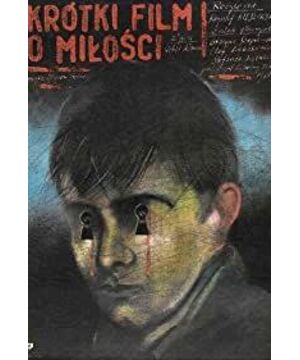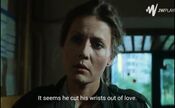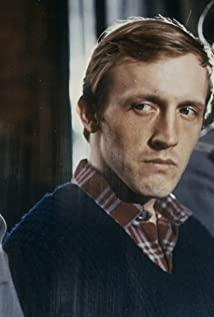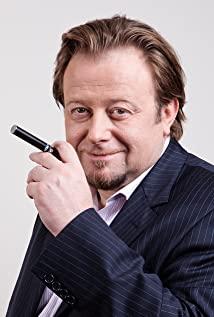Exalted into feature-length form from his ten-part DEKALOG series (which was released in the end of 1989), Kieslowski's THE SHORT FILM ABOUT KILLING is expanded from the fifth chapter and THE SHORT FILM ABOUT LOVE the sixth, with a different ending though . Both films are theatrically released in 1988, the former competed in Cannes and the latter debuted in October.
KILLING is prominently and visually singular on account of its solarized, topaz-tinted, multi-filtered imagery (courtesy to DP. Slawomir Idziak's industrious work), which depersonalizes the senseless action of killing and glazes it with a fable-like sheen and eeriness. Its texture evokes orthochromatic silents of yesteryear, with an iris-shot composition, during scenes of the prison execution, one could even see a cruciform-shaped cynosure in the dead center. (or is it just me?)
Apropos of nothing, a young drifter Jacek (Baka, spunkily exhibiting the contrasting carriage of casual cruelty and death-row panic in his very first movie role) murders Waldemar (Tesarz), a taxi driver, and consequentially, he is sentenced to death by hanging. The two killings are dealt with equal callousness and dispassion, Jacek's malice aforethought is beyond doubt, but his motive has far more complicated psychological links to past traumas, we only partially see daylight during his poignant convo with his advocate Piotr (Globisz) before his execution, but the consensus is that Jacek is not an ingrown psychopath, he is a troubled youth left adrift after being smitten by guilt and driven by nihilism.
Moreover, by depicting Waldemar as a less sympathetic, foibles-laden average Joe, Kieslowski also tries to stem a viewer's outpouring compassion to the innocent victim, ambivalence is hard to banish, which similarly relegates Poitr, the salt of the earth, a pillar of strength in the society to a bleeding heart. It is his notion to use punishment as a deterrent to criminality, but when that punishment is actually enforced in a manner makes little difference than the crime itself, doubt clouds over his head. Ergo, Kieslowski conscientiously challenges the application of capital punishment, not just in Jacek's case, but as the ultimate deterrent, does it has a solid moral ground? That is the food for thought.
LOVE returns to a more conventional visual style (Witold Adamek assumes the post of cinematographer) but Kieslowski's directorial prowess doesn't sap, the film's contrivance of a belated meet-cute is deftly blithe but rather endearing. It commences as an arresting case of scopophilia , 19-year-old postal clerk Tomek (Lubaszenko, with a deep vocal register that is too mature to his age) carries a torch for Magda (Szapolowska, a knockout who has striking finesse to capture a free-spirited woman's frustration, bemusement and transmogrification without going overboard), a sultry, 30-something painter, whose apartment is just within sight of his telescope. It is a Hitchcockian REAR WINDOW situation, but Kieslowski ascertains us that Tomek is as innocuous as a lamb, his immoral diet never mounts to any harm to Magda, in fact,we all share some knowing delight in Tomek's little trick to sabotage Magda's all-too-frequent bedroom frolics (I am guilt as charged, so is Kieslowski, slut-shaming is a hard-wired prejudice difficult to shuck off).
Once Tomek levels with Magda, the film veers into a less effervescent, moralistic route where Tomek's platonic limerence is teased by Magda's conviction that love is equivalent to concupiscence. Blood will flow but Kieslowski steadfastly fights Tomek's corner and henceforward, it is Magda who is burdened with a change of heart and dusts off her binoculars to spy on Tomek for a change, eager to admit her fault, almost religiously, and imagine a tender reconciliation. But is it really okay to condone Tomek's creepy behavior just because in his case, it is a harmless one? Peculiarly, I find Kieslowski a tad wavering from his sound judgement on that matter.
That said, both films are among Kieslowski's best offerings, eloquently preaching without preconceived bigotry and dissecting a straightforward case with pellucid discernment and sharp clarity narrative. Kieslowski is the modern high priest of morality pedagogy, LOVE is a tactful plea of love over lust and KILLING earns added value for being such a unique eyeful, where amorality is unsettlingly, contemplated through a dun, warped prism.
referential entries: Kieslowski's BLIND CHANCE (1987, 6.9/10); THREE COLORS: RED (1994, 8.4/10).
English Title: A Short Film About Killing
Original Title: Krótki film o zabijaniu
Year: 1988
Country: Poland
Language: Polish
Genre: Crime, Drama
Director: Krzysztof Kieslowski
Screenwriters: Krzysztof Kieslowski, Krzysztof Piesiewicz
Music: Zbigniew Preisner
Cinematography: Slawomir Idziak
Editing: Ewa Smal
Cast:
Miroslaw Baka
Krzysztof Globisz
Jan Tesarz
Aleksander Bednarz
Zbigniew Zapasiewicz
Jerzy Zass
Elzbieta Helman
Krystyna Janda
Zdzislaw Tobiasz
Barbara Dziekan
Artur Barcis
Rating: 8.3/10
English Title: A Short Film About Love
Original Title: Krótki film o miłości
Country: Poland
Language: Polish, Portuguese
Genre: Drama, Romance
Director: Krzysztof Kieslowski
Screenwriters: Krzysztof Kieslowski, Krzysztof Piesiewicz
Music: Zbigniew Preisner
Cinematography: Witold Adamek
Editing: Ewa Smal
Cast:
Grazyna Szapolowska
Olaf Lubaszenko
Stefania Iwinska
Piotr Machalica
Artur Barcis
Rating: 8.1/10
View more about A Short Film About Love reviews








